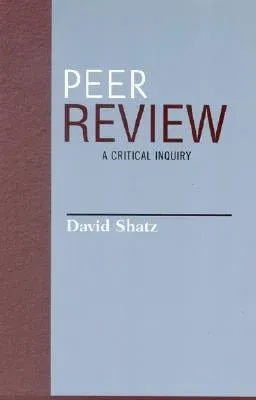David Shatz
(Author)Peer Review: A Critical InquiryHardcover, 23 November 2004

Qty
1
Turbo
Ships in 2 - 3 days
In Stock
Free Delivery
Cash on Delivery
15 Days
Free Returns
Secure Checkout

Part of Series
Issues in Academic Ethics
Print Length
264 pages
Language
English
Publisher
Rowman & Littlefield Publishers
Date Published
23 Nov 2004
ISBN-10
074251434X
ISBN-13
9780742514348
Description
Product Details
Author:
Book Format:
Hardcover
Country of Origin:
US
Date Published:
23 November 2004
Genre:
Education
ISBN-10:
074251434X
ISBN-13:
9780742514348
Language:
English
Location:
Lanham, MD
Pages:
264
Publisher:
Series: